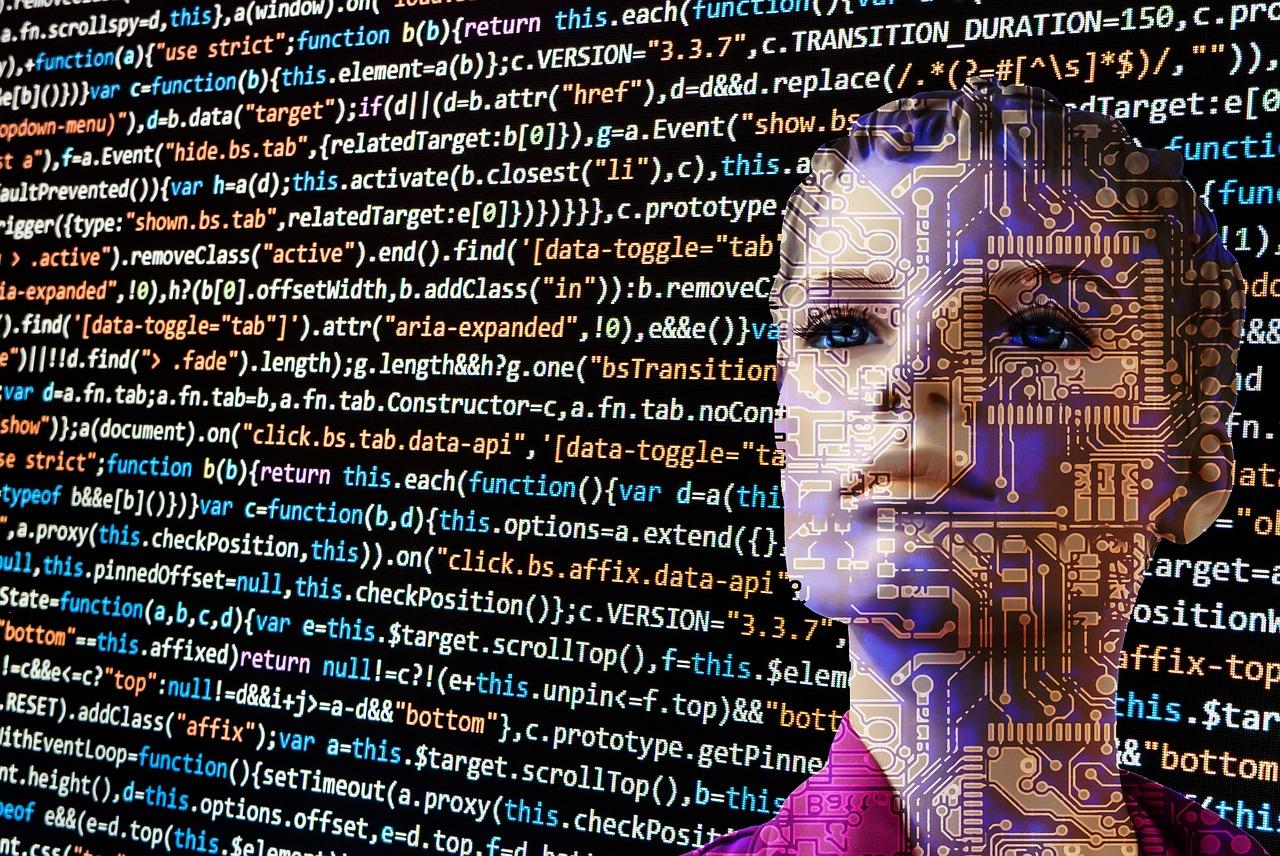Continuous learning not only keeps our brains healthy and active, but it gets us out of our comfort zone and prepares us for the unexpected changes that life sometimes throws our way. The more you learn, the easier it becomes.
We know learning makes you smarter, but it’ll also improve your chances of making exciting career moves, bringing innovation to your industry or you will suddenly see new creative solutions in your own work because of your new perspective.
Learning professional skills, like coding, can also make you a more valuable asset to any company. Many international innovative companies are noting how important computers have become in our ordinary lives and computer programming abilities empowers employees to implement their skills to the benefit of the business and the consumer.
Whether you are young or old, work in marketing, design, finance, IT or are looking for a new career, python coding is one of the best programming languages you can learn to give you brain and career a boost.
Here’s how Python programming can help you in various careers, why Python is one of the best options for beginners and how you can learn Python.

Why Python?
Python is a language used to string together code. Code lays out the instructions that computers need to create the functions that run a program or application in a way a developer or programmer envisions it.
Python is one of the top three programming languages in the world. It’s generally easier to learn because its simplified syntax tries to represent the flow of a natural language and its nature allows it to be used in application to other computer programs and code.
The increased demand for programmers across the globe, due to the fast speed of technological innovation, means that those with coding experience could find work or career opportunities anywhere in the world, whether as freelancers or permanent employees..
Computer scientists and analysts are all exposed to Python as it’s one of the best languages to simplify and work with data. They use it in big data, machine learning applications, cloud computing and thousands of other applications.
Python's flexibility allows for problem-solving in new and innovative ways instead of duplicating old code. It is also this flexibility that makes the integration and use of technology across all industries possible.
Programmers and coders will always have their favourites when it comes to code to learn, but Python programming is one of the most popular as it is used in most of the following fields:
- Data science
- Web development
- System automation and programming
- Fintech, finance and trading applications
- Game development
- Mathematical and scientific computing
There are a number of computer languages that computers read if they are programmed to do so. Coders string together code to build programs or apps like the ones we have on our phones, but code can also be applied to other functions within the business, like operations, finance and client service.
One example is how marketing teams can use their coding skills to bring clearer analysis to marketing data and automating processes related to monthly reporting. Through further coding and programming they can also create integrated projects to cross-pollinate data from various business units to inform operations and strategy.

The Careers in Python
The list of projects that require code is endless.
Do you want to build a program to read and analyse data in new ways, or would you rather develop a web application or a game? Learning a good foundational and generic code is the first step and the possibilities are endless.
Python programmers can enter a variety of fields, especially if you consider the broad and ever-changing nature of coding and technology. If you are interested in a focused career in Python coding, you could consider one of the following careers:
- Python Developer: If you understand Python you’ll be able to develop mobile apps, websites and program or web applications to the benefit of businesses and consumers. Python developers are generally the experts when it comes to building websites, implementing security protocols and solving data problems.
- Data Analyst: Data analysts can extract useful information from massive sets of data, but those analysts with experience in Python can create code to support data analysis and ongoing machine learning.
- Python Teacher: More students are interested in learning Python than ever before, especially because it’s such a strong and practical foundational coding language for a future in programming and coding. If you have a calling to develop the innovators of the future, teaching others to code could be the ideal career for you.
Start with a python course for beginners now.

Where and How to Learn Python?
There are generally very limited requirements to entry for most Python coding courses above and beyond the basic computer literacy students require. Your career considerations and level of exposure to technology will determine your first step towards becoming Python proficient.
On-Campus, Full-Time Degree
Formal qualifications tend to be the go-to for prospective coders who consider a career in computer science, programming or coding. You can decide to study full time at the University of Pretoria, Pretoria Technical College or one of the many private colleges across Pretoria. If the idea of having a full-time student-life on campus sounds appealing, then this might be a great way for you to immerse yourself in your studies.
These qualifications tend to explore everything computer-related and Python is only one of the coding languages you’ll learn on your journey to becoming a tech boffin. They tend to be a bit more expensive as students are supported through ongoing classes, campus facilities and daily in-person lectures.
Part-Time Certifications at Colleges
There are a number of institutions in and around Pretoria that offer Python certifications if you want to explore the foundational aspects. Some of them have a diploma focused approach where students choose the subjects they want to specialise in. As an adult learner you’ll have to fit classes in between your other responsibilities, but, luckily, some colleges offer online modules and methods to make learning more accessible.
Online Degrees and Certifications
Learning technology, using technology, means it’s never been easier for a beginner coder to get an introduction and progress their Python coding while studying from home.
Beginner online courses are also great additions for qualified professionals from other fields who want to add coding to their skill set. Most online colleges offer students the flexibility to learn at their own pace and they offer support if students have issues during their studies.
The world of online learning has evolved much over the last couple of years with the help of MOOCs (Massive Open Online Courses) you can now also opt for an international qualification online through universities across the globe. Every MOOC has its pros and cons and for the Python beginner who wants to just learn Python there are specific courses on most to get you started.
We recommend you do some research to find the one that best suits your pocket and learning ambitions. To get started you can investigate the courses available on Coursera, Udacity, Codacademy and Udemy. Many of them also have free introduction modules for students to try out courses before they continue to make a bigger commitment to a certificate or degree.
Sign up for a python course today.
Self-Study and Python Tutorials for Beginners

Free resources like online courses, YouTube and online tutorials on Python could also be enough to get you started. This approach tends to be a bit more challenging as you need to figure everything out on your own and we only recommend this if you enjoy working with technology and have had significant exposure to it.
Getting your own personal tutor is ideal for those who prefer self-study. You can use the first lesson to discuss your plans and get tips on putting together your own learning plan with them. This could include what a string of code means, examples of syntax errors and help in resolving challenges you pick up along the way.
We live in the era of technology, but some students also prefer good old-fashion books in print. If this is you, you can find a variety of books on coding and programming at book shops like Exclusive Books or those that usually sell tertiary educational books like the Van Schaik Bookstore. A book is also a great alternative that can be used to learn, especially if you are usually on an electronic device.
Take a python course here.
Private Online Python Tutors
Unavailable lecturers, big classes, disruptions or even personal crises; sometimes it is simply not possible to get all the information across to students during lectures. Every student also learns at a different tempo and in a different way. If you're feeling a bit lost, an online tutor will be able to lead you every step of the way to ensure you stay ahead of the curriculum.
Python tutors are the perfect supplement to any formal studies as they will focus on doing practical exercises and examples, and problem-solving techniques that are suited to your own personal learning. Python tutorials for beginners can also be used by those who only want to try out coding for the first time to see if they enjoy it.
Every Superprof tutor has a profile page which highlights their qualification, lesson cost, specialties and background. Book a tutorial with one that best matches your future coding ambitions and be sure they are proficient in Python.
Learning coding has never been easier, regardless of how old, young, experienced or tech savvy you are.
Are you ready to step into new possibilities in your career? Start today by setting up your first tutorial.
Summarise with AI















